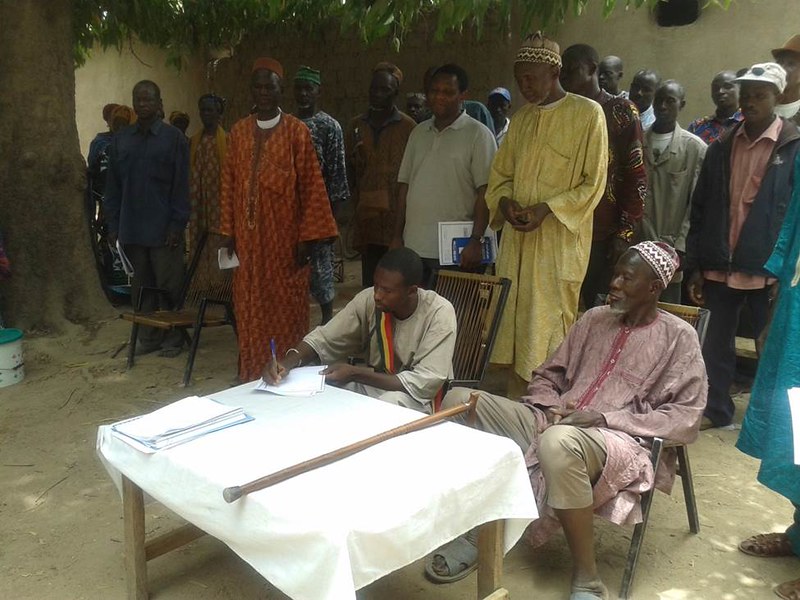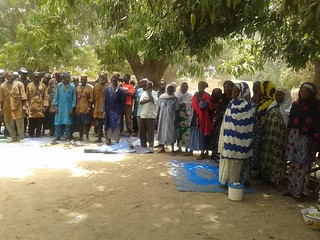A new dawn in Zanzoni, Mali as natural resource management conventions are formalized

Bang, bang, bang!!!
The sound of the three gun salute rent the air as residents of Zanzoni village in southern Mali watched expectantly. The pin-drop silence that permeated the village square as the three traditional hunters shot skywards soon gave way to sounds of joy and celebration.
Tuesday 21 April, 2015 is a day the community will never forget. It is the day the residents of Zanzoni and their leaders formalized their oral non-formal rules of natural resource management into formal (written) local conventions for the community.
Since September 2013, through the Africa RISING project, the International Livestock Research Institute (ILRI) and L’Association Malienne d’Eveil au Développement Durable (AMEDD), a local Malian NGO, have worked with the community in Zanzoni to ensure that they have a more equitable and sustainable approach of managing natural resources in their mixed crop-livestock systems. Like in most sub-Saharan African countries, natural resources are the basis for the livelihoods of rural communities in Mali who depend almost exclusively on agriculture and livestock. Many factors, such as the rapid increase in human and livestock population have resulted in growing pressure and conflicts over natural resources.
While various efforts have previously been made to develop and formalize local conventions, multiplicity and the ambiguity on the legality of local conventions have slowed down effective implementation of decentralized management of natural resources. The participation of community members in the elaboration and implementation processes had also previously been weak despite their important role as custodians and users of the natural resources.

The journey from oral non-formal rules to formal local conventions for the management of natural resources in the community started with a study to document the existing local rules and norms by Clarisse Umutoni, an ILRI PhD fellow based at the ICRISAT office in Bamako, Mali. The study was conducted under the USAID-funded Africa RISING project in Mali.
‘We found that most rules and norms governing natural resource use and management in Mali’s communities were oral. The custodians of these local rules and norms were often the village elders and with passage of time, there is high risk the younger generations will forget them,’ says Umutoni.
The concept of formalization of the local rules and norms has been promoted in Mali under an initiative of decentralization reform to empower communities to manage their resources. Together with AMEDD, ILRI supported the writing of the local conventions in Zanzoni, a relatively big village of more than 3,000 people.
AMEDD led the processes of writing down the local rules and norms with key community leaders after a series of meetings. The draft local rules and norms were then reviewed by a committee of elders in the village and a date – 21 April 2015 was set for validating the draft rules and norms by the whole community.
With the signature of the village chief and the mayor, the document will now be presented to the administrative head of Koutiala province (‘cercle’) for review and once approved, it becomes a legally binding set of rules for the community.
The village chief and various community leaders in Zanzoni praised the project for the achievement. ‘This convention will help in reducing conflicts with pastoralists whom we share some of these natural resources with,” said the chief at the end of the event. The success in Zanzoni has already spurred interest among leaders of neighboring villages who have approached AMEDD for similar interventions to be initiated in their villages.




